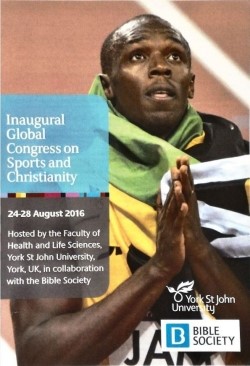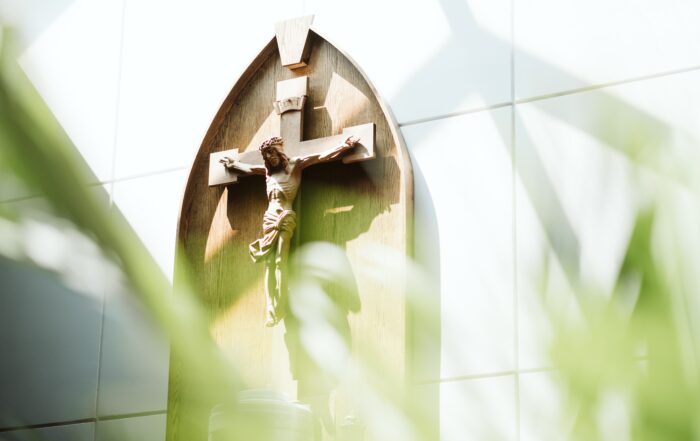Inaugural Global Congress on Sports and Christianity

A few minutes and much duct tape later, I was out on the court. Yes, my arm muscles were weak and, yes, racing to the net in a power wheelchair wasn’t pretty, but I was doing it. I was in sport. The athlete that I still was on the inside had found an outlet – albeit feeble – to express all my athleticism that was still bottled up. A few minutes later, exhausted, I wheeled off the pavement, as though I were stepping off a backcourt of heaven. And I felt free.
Is there a connection between sports, disability, and our faith? I’m living proof there is. That brief afternoon on Brad’s tennis court ignited a happy-hearted effusion of praise and thanksgiving to God – what a gift God had given me! And to this day, whenever I spend time with other sports-people with disabilities, I sense a special connection. Like a brotherhood. For as we sit in our wheelchairs and share sporting memories, there is also a shared light in our eyes – we recognize we’ve experienced something truly exceptional that binds us together.
Perhaps God has given those of us with disabilities a deeper appreciation and understanding of just how freeing and positively liberating sports can be, especially through physical or intellectual limitation. It is, indeed, a spiritual experience. It’s why I’m excited about the Congress on the Theology of Disability and Sport. True, the Paralympics were inaugurated in 1960, and Special Olympics in 1968, all of which raises public awareness of disability in a general sense. But there is still a long way to go. So I welcome all of you who are practitioners, Christian leaders, sports enthusiasts, and academics. Whether or not you are able to attend this Conference, I encourage you to read Nick Watson and Andrew Parker’s book: Sports, Religion and Disability. Who knows? If you’re a wheelchair user, you just may take up wheelchair tennis!
Not long after the accident in which I became a quadriplegic, I met Brad Parks, the legendary inspiration behind the sport of wheelchair tennis. It was at a Los Angeles Disability Exposition and I was sitting courtside watching, when he wheeled over and asked, “Want to give it a try?” For me, a lover of tennis when I was on my feet, and a quad who could still remember what it felt like to wrap my fingers around a racquet’s handle, his question left me breathless. Does this guy really think I can still swing a backhand?
A few minutes and much duct tape later, I was out on the court. Yes, my arm muscles were weak and, yes, racing to the net in a power wheelchair wasn’t pretty, but I was doing it. I was in sport. The athlete that I still was on the inside had found an outlet – albeit feeble – to express all my athleticism that was still bottled up. A few minutes later, exhausted, I wheeled off the pavement, as though I were stepping off a backcourt of heaven. And I felt free.
Is there a connection between sports, disability, and our faith? I’m living proof there is. That brief afternoon on Brad’s tennis court ignited a happy-hearted effusion of praise and thanksgiving to God – what a gift God had given me! And to this day, whenever I spend time with other sports-people with disabilities, I sense a special connection. Like a brotherhood. For as we sit in our wheelchairs and share sporting memories, there is also a shared light in our eyes – we recognize we’ve experienced something truly exceptional that binds us together.
Perhaps God has given those of us with disabilities a deeper appreciation and understanding of just how freeing and positively liberating sports can be, especially through physical or intellectual limitation. It is, indeed, a spiritual experience. It’s why I’m excited about the Congress on the Theology of Disability and Sport. True, the Paralympics were inaugurated in 1960, and Special Olympics in 1968, all of which raises public awareness of disability in a general sense. But there is still a long way to go. So I welcome all of you who are practitioners, Christian leaders, sports enthusiasts, and academics. Whether or not you are able to attend this Conference, I encourage you to read Nick Watson and Andrew Parker’s book: Sports, Religion and Disability. Who knows? If you’re a wheelchair user, you just may take up wheelchair tennis!





